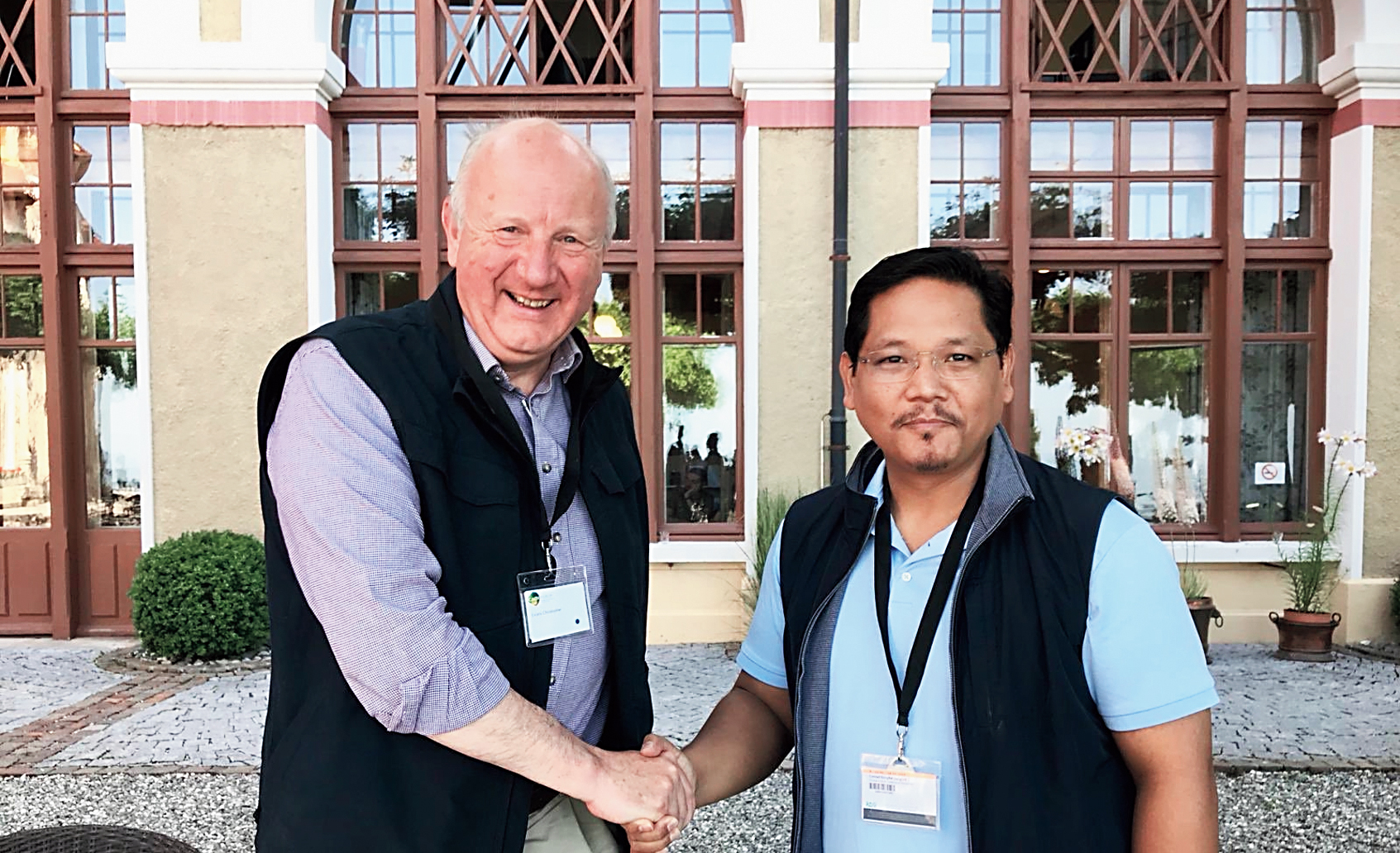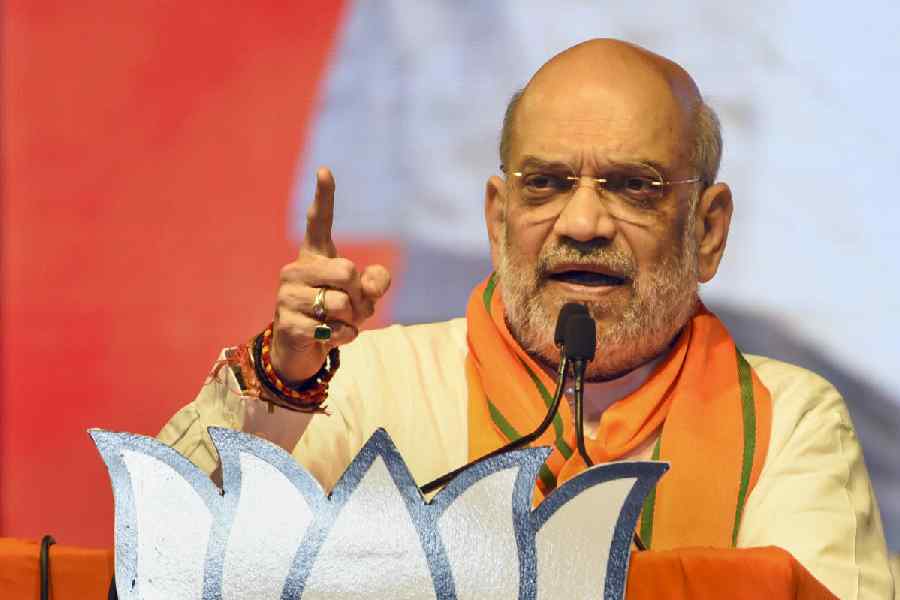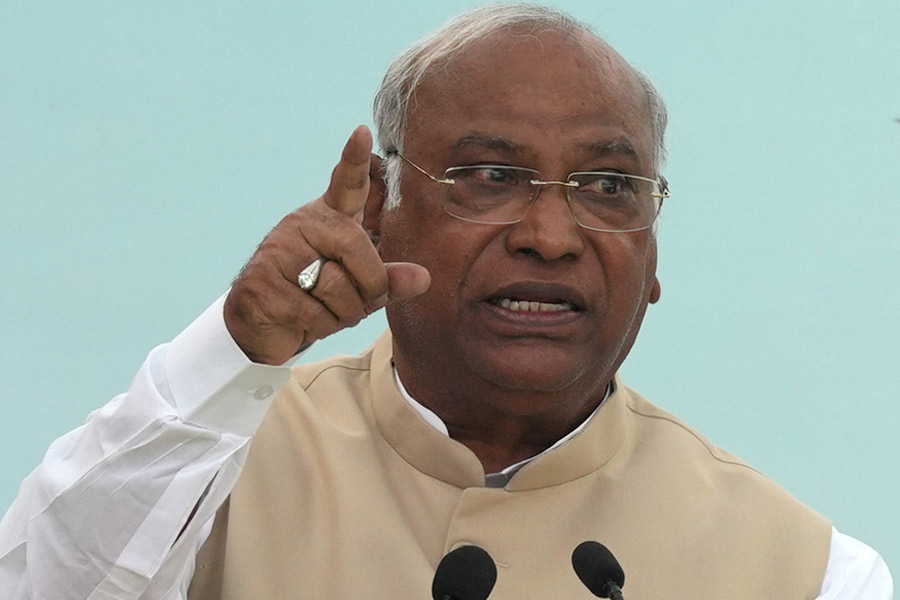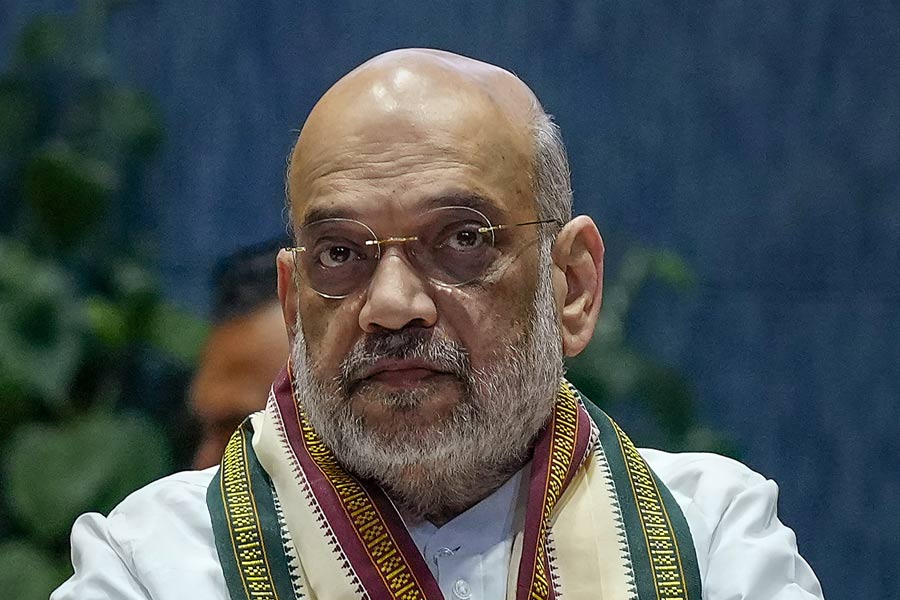More than 47 years ago, a teenager from a foreign land witnessed the creation of Meghalaya as a separate state on January 21, 1972.
Now in his sixties, that teenager, Chris Evans, met Meghalaya chief minister Conrad K. Sangma in Switzerland on Thursday.
“Met Mr Chris Evans in Caux, Swizerland (sic), a member of MRA (Moral Re-Armament) which was instrumental in guiding our leaders during the movement of Statehood of Meghalaya. Mr Evans was a young 19-year-old boy who was present in Shillong on the day Statehood was given to Meghalaya,” Conrad tweeted along with a picture.
The War Prevention Works: 50 Stories of People Resolving Conflict by Dylan Mathews gives a detailed account on the role of Moral Re-Armament in India during 1967-1972.
Meghalaya’s road to achieving full statehood from Assam was largely non-violent; not a drop of blood was shed.
The account mentions the then general secretary of the All Party Hill Leaders’ Conference (APHLC), Stanley Nichols-Roy. His father, J.J.M. Nichols Roy, was one of the founders of the Sixth Schedule.
Stanley Nichols Roy continued to host MRA gatherings in Shillong till the nineties, advocating non-violent routes to peace.
Conrad on Thursday participated in the Caux Forum 2019 Dialogue on Land and Security in Montreux. He will be in Switzerland till Sunday.
Addressing the forum, Conrad gave an insight about the state and said the discovery by geologists in 2018 about the Meghalayan Age had put it in the global spotlight.
He also spoke about the traditional and indigenous customs and practices of the people. “We have a lot of traditional rules and laws that don’t apply to other parts of the country and it is a community-driven society,” Conrad said.
The chief minister spoke about the land tenure system, the sacred groves and the living root bridges of Meghalaya. “We as a government are proud of our society and the idea of our sacred groves and living root bridges should be known to the rest of the world,” he added.
The chief minister also said the state has around 6,500 villages and the government will ensure that the National Resource Management Plans are made through full community participation.
He said there was a special emphasis on restoration of land in more than 400 villages.
Speaking of water crisis, he said, “Water depletion and water crisis is a massive problem in our country and our state is one of the first to prepare a State Water Policy to address the issue of water conservation and water use.”
He also said his government would sign a memorandum of understanding with the University of Berkeley in September to adopt 100 villages to start the concept of Smart Villages in Meghalaya.
“Our cities are already choking and setting up smart villages will prevent urban migration and related environmental issues,” he said.
The annual Caux Forum through conferences, training and dialogues aims to inspire, equip and connect people, groups and organisations to build a just, sustainable and peaceful world.










